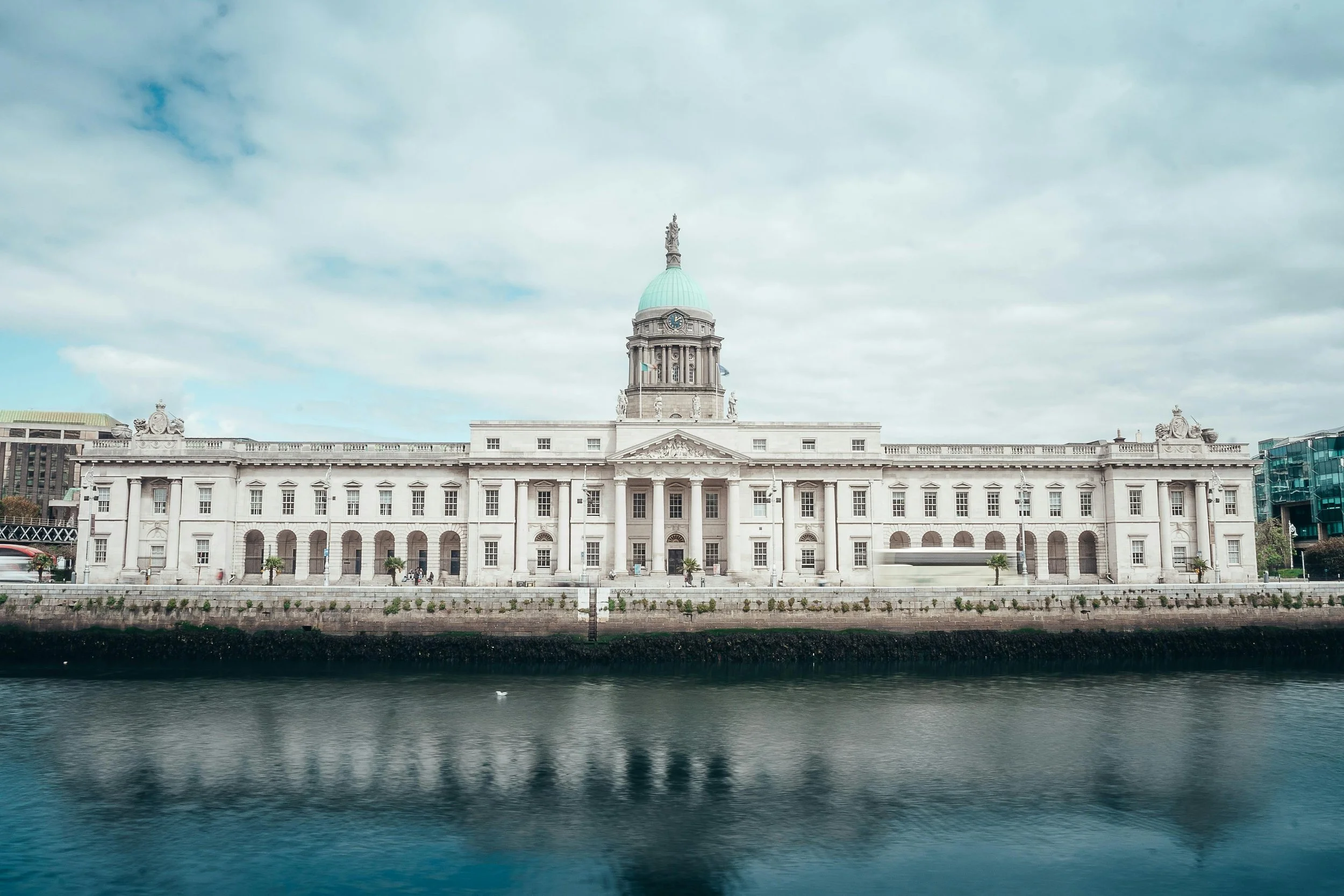Positive Climate Stories in February
The days are getting longer and the first signs of spring are starting to come through – and as if that wasn’t enough to be happy about, here’s our February positive climate stories blog!
1. UK pulls out of controversial Energy Charter Treaty
This month the UK became the latest country to leave the Energy Charter Treaty (ECT) following Spain, Germany, France, Italy and the Netherlands.
First signed in 1994, the Treaty's stated intentions are to ensure energy security and investment protection while minimising environmental impact of energy production. However, campaigners have long shown these priorities to be skewed, with the treaty providing a means for fossil fuel companies to sue governments for profit losses that result from their climate policies.
After numerous rounds of negotiations to update the treaty to align with Paris climate targets, countries began to pull out of the treaty. “The energy charter treaty is outdated and in urgent need of reform, but talks have stalled and sensible renewal looks increasingly unlikely,” announced UK Energy Security and Net Zero Minister, Graham Stuart. “Remaining a member would not support our transition to cleaner, cheaper energy, and could even penalise us for our world-leading efforts to deliver net zero.”
The UK’s departure from the treaty is a blow for fossil fuel producers for whom the treaty has been an effective means of pushing back against green policy. It remains to be seen which states will be next to follow suit.
2. The plane in Spain banned, mainly when there's a train
The latest in the plane vs train playoff, Spain is set to ban domestic short-haul flights when there is a train journey alternative of less than 2.5 hours. First conceived in 2021, the plan could save up to 300,000 tonnes of CO2 and 50,000 flights per year according to some estimates – slashing Spain’s emissions by 10% – and has been celebrated by local activists. Perhaps most significantly, it may include private jets – an area of aviation that has received a lot of attention recently.
Other voices including Spain’s opposition parties have decried the measure as ineffective, due to the exemption of flights heading to hub airports for international connections, and, notably, the low frequency of high-speed trains under 2.5 hours on the busy Barcelona-Madrid route, despite Spain’s otherwise advanced high-speed rail network.
Spain’s announcement follows France’s implementation of similar measures last year which have also come under fire for their limited impact. These moves highlight the importance of holistic policymaking that accounts for the interaction between different transport sectors as well as broad economic investment and infrastructural plans.
Spain’s policy is a great start, and the benefits will only increase if rail infrastructure is advanced in future.
3. Inter-American Court of Human Rights to hear testimonies from climate vulnerable countries
Voices from global south and climate vulnerable countries have long been ignored in conversations about the climate crisis. In a step that contributes to correcting this unjust trend, the Inter-American Court of Human Rights (IACHR) is set to hear testimonies from individuals forced to migrate on account of climate change, including from Mexico, Honduras, the Bahamas and Colombia.
The hearings are set to include recommendations for protecting the rights of those forced to migrate on account of climate change related disasters: both fast, such as hurricanes or floods; and slow, such as long-term ocean acidification or coastal erosion.
As well as being a significant step in the movement for climate justice, giving a platform to those who are experiencing the worst of climate change while having by-and-large contributed least to it, this is also a key development in the growing recognition of the link between human rights and the climate crisis.
Last month the OHCHR released a call for evidence on this relationship, to which Opportunity Green responded with analysis on loss and damage and a recommendation for two aviation levies.
4. Amsterdam airport must cut emissions
In an inspiring example of industry advocating for robust decarbonisation policies, research commissioned by the Royal Schiphol Group, which operates Amsterdam’s Schiphol Airport, shows that it must cut emissions by 30% by 2030 to stay on track for Paris climate targets. The results demonstrate a major gulf between the need for aviation decarbonisation relative to the Netherlands’ nationally determined contribution (NDC) of 9%.
Schiphol went on to recommend a series of aviation taxes, the revenues of which would finance the sector’s transition away from fossil fuels. This scheme would include replacing the current passenger tax with levies targeting long-haul flights, business class flights and private jets, complying with the “polluter pays” principle, rightly targeting richer flyers, and reducing demand.
Last year the Dutch government – the biggest Schiphol shareholder – set flight caps at the Amsterdam airport in an attempt to limit emissions, noise and air pollution. Following legal complaints by a number of airlines, the case found itself first in a regional court and then in the Court of Appeals, which ultimately found in favour of the government, as our Legal Manager David explained in this blog last year.
While plans to limit flights were shelved in November following pressure from the US, the latest research and policy proposals coming from Schiphol seems to be a further step in the right direction. As the report commissioned by Schiphol notes:
“The aviation industry worldwide has to answer the question as to how it prevents a substantial overshoot of the remaining carbon budget. Action is needed in all parts of the world. This includes the development of new technology, fast upscaling of sustainable fuels but also ambitious demand management.”
5. Ecocide recognised as a crime in Belgium
In a first for European environmental law, Belgium has recognised the crime of ecocide. In passing a new penal code for the country, the Belgian Federal Parliament designated ecocide the most “severe cases of environmental degradation” on both the national and international level.
Patricia Willocq, Director of Stop Ecocide Belgium, commented, “Belgium is now at the forefront of a truly global conversation around criminalising the most severe harms to nature and must continue to advocate for the recognition of ecocide at the international criminal court alongside genocide.” She continued, “in order to fully protect nature, it is necessary that those that would wilfully destroy vast swathes of the natural world, in turn causing untold human harm, should be criminalised. We will continue to campaign to eradicate ecocide from Belgium and the world.”
As the first European country to make this legal jump, Belgium has paved the way for greater recognition of the needs of our ecosystems, and created a legal mechanism for punishing their destruction that applies to both governments and private corporations.
What positive climate stories have lifted your spirits this month? Share it with us on Twitter or LinkedIn and we’ll help to spread the word.









